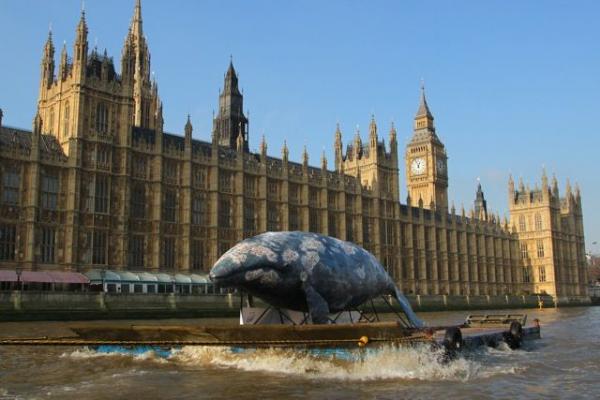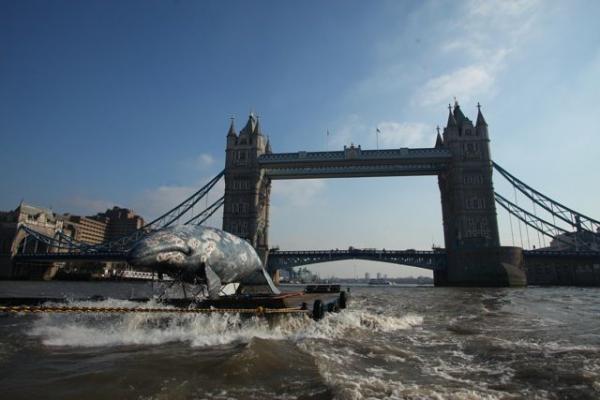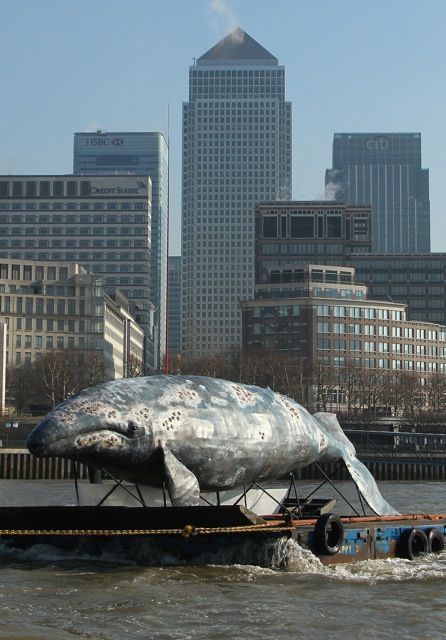
The people of London were greeted by an uncommon spectacle this week as an enormous western gray whale floated down the River Thames. Bearing in mind the fact that such giants of the deep are usually only found in the Pacific Ocean, bystanders could be forgiven for wondering what on Earth the reason was behind this strange cetacean sighting.
The truth is that the World Wildlife Fund (WWF) were responsible, having brought in what was in fact an 11 meter-long (36ft) life-size replica to focus attention on a threat to the species – which is already on the brink of extinction. There are thought to be as few as 130 western gray whales left on the planet, with only 26 breeding females, but today this population faces a new danger that could push them out of existence.

One of the whales’ critical feeding grounds is to be found in Russia’s Far East, off the coast of Sakhalin Island. The problem is that, on top of the two drilling platforms already in the area, the Sakhalin II oil and gas project want to build another. What’s more, this additional oil rig was not mentioned in the original plans, nor was it part of the environmental impact assessment. The WWF is asking the European banks involved in funding the project – BNP Paribas, Credit Suisse and Standard Chartered – to oppose the third platform before it is too late.

With so few breeding western gray females left, every calf is vital to the survival of these gentle giants. Gray whales are the only large animals of their kind that eat directly from the seabed. They do this by churning up the sandy bottom to expose invertebrates that they then filter through the baleen plates in their mouths. The mothers can only teach their calves how to do this is in the shallow waters off Sakhalin Island during the summer and autumn months.

The hazards from a third drilling platform include both noise and chemical pollution, potentially fatal collisions between whales and ships, and an increased danger of oil spills. You can help by signing the petition at thelast130.org. You can also join the Twitter conversation at #thelast130.
No comments:
Post a Comment